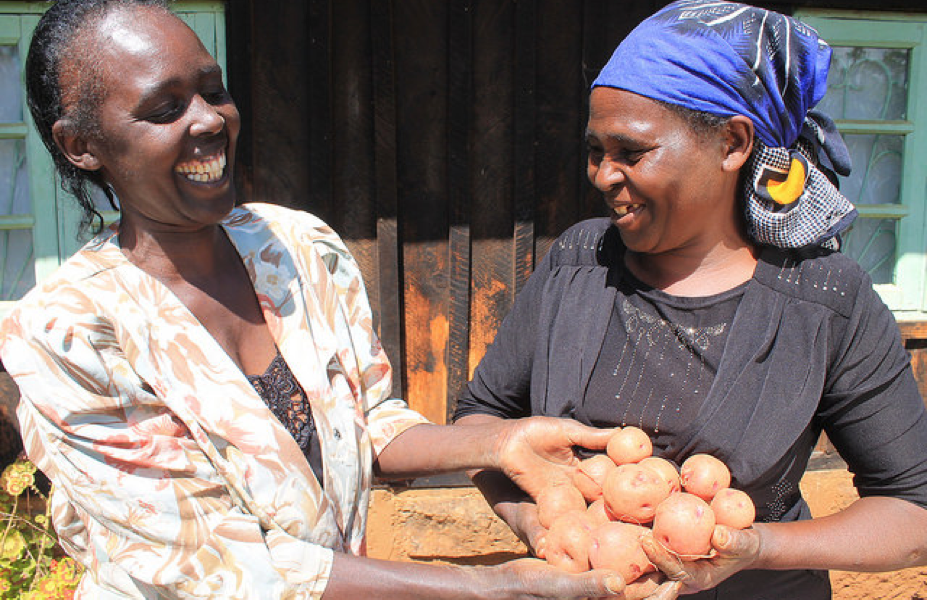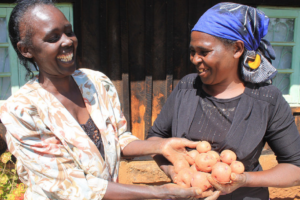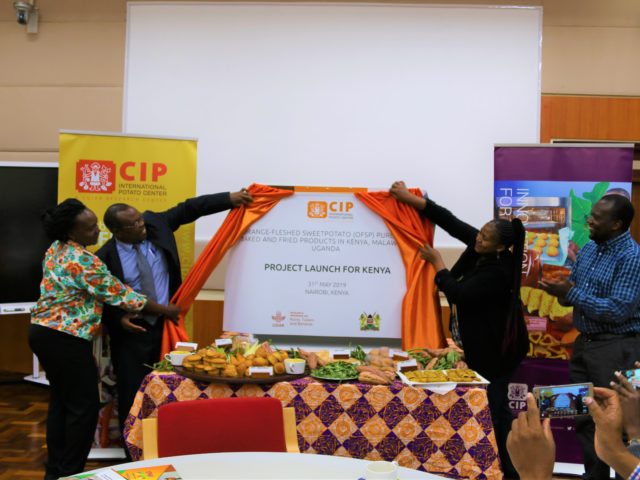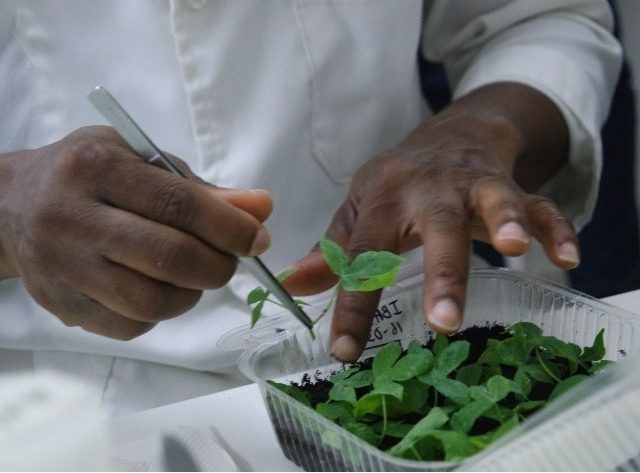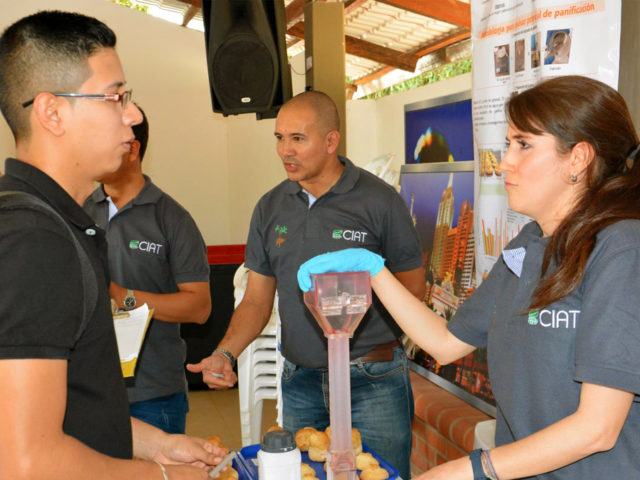The 13th International Symposium for the International Society for Tropical Root Crops- Africa Branch (ISTRC-AB) has kicked off this week in Dar es Salaam, Tanzania. The four day meeting (5-8 March) brings together over 300 delegates from government agriculture ministries in Africa, development partners, international and national agriculture research organizations, academia, private sector as well as farmers with an interest in root and tuber crops in Africa.
Participants will present and discuss latest research, innovations, technologies and trends on root crops in line with the theme “Expanding Collaboration, Catalyzing Innovation of Root Crops for Accelerating Africa’s Economic Growth”.
“We hope we will get practical hands-on solutions, that can help address farmers’ constraints in production of root crops, with the modest investment dedicated to research and development of these crops,” said Tanzania’s Minister for Agriculture and Fisheries (MALF) in a speech read by his Director Dr. Hussein Mansoor. He encouraged researchers to work together with the farmers, policy makers and all stakeholders, for co-ownership of research findings to increase chances of technology adoption for the intended improved productivity and utilization of root crops.
He also further called for applause of the 2016 World Food Prize (WFP) laureates from the International Potato Center (CIP) which is the lead center of the CGIAR Research Program on Roots, Tubers and Bananas (RTB) —Drs Maria Andrade, Robert Mwanga and Jan Low, all attending ISTRC-AB—for their great achievement in contributing to reduced hidden hunger among women and children of Africa, through the orange-fleshed sweetpotato (OFSP).
Earlier, Dr. Low delivered a key note address, at ISTRC-AB, highlighting significant gains made in sweetpotato work in the region. “Our breeding work in Africa has grown from only two countries in 2005 to 12 in 2009. A further three are engaged in varietal selection,” said Low.
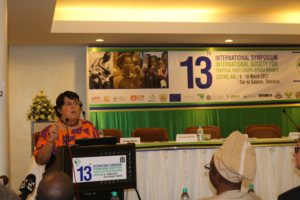
Dr. Jan Low delivers key note address the 13th ISTRC-AB symposium in Dar es Salaam, Tanzania. Photo: V. Atakos (CIP)
She highlighted investments by national governments as important in supporting roll out of nutritious root crops such as OFSP. “Policy support is critical in helping change perception of sweetpotato as a crop for the poor,” she said.
The meeting revolves around five sub themes relevant to RTB:
- Managing priority genetic resources, cropping systems and pests and diseases
- Commercial seed system, agronomy and weed management
- Post harvest technologies, nutrition, value chains and market opportunities
- Enhancing innovative impact through partnerships
- Mobilizing investors for sustainable root and tuber crop research and development.
The concluding day of the conference on March 09 will feature a special plenary session for RTB to provide an update on the progress and results from the program’s five flagship projects.
ISTRC-AB conference has been organized by the International Institute of Tropical Agriculture (IITA) working closely with a number of partners including RTB, CIP, and the Natural Resources Institute among others. ISTRC-AB was established in 1978 and is headquartered in IITA.
Blog contributed by Vivian Atakos, Regional Communications Specialist, International Potato Center
